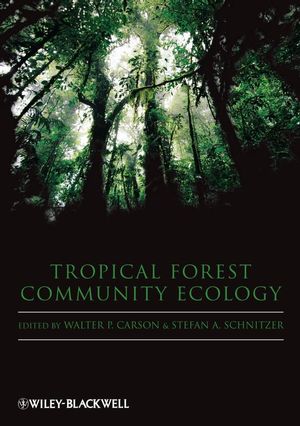Tropical Forest Community EcologyISBN: 978-1-4051-8952-1
Hardcover
536 pages
September 2008, Wiley-Blackwell
 Other Available Formats: Paperback
|
||||||
Historically, tropical ecology has been a science often content
with descriptive and demographic approaches, which is
understandable given the difficulty of studying these ecosystems
and the need for basic demographic information. Nonetheless, over
the last several years, tropical ecologists have begun to test more
sophisticated ecological theory and are now beginning to address a
broad array of questions that are of particular importance to
tropical systems, and ecology in general. Why are there are so many
species in tropical forests and what mechanisms are responsible for
the maintenance of that vast species diversity? What factors
control species coexistence? Are there common patterns of species
abundance and distribution across broad geographic scales? What is
the role of trophic interactions in these complex ecosystems? How
can these fragile ecosystems be conserved?
Containing contributions from some of the world’s leading tropical ecologists, Tropical Forest Community Ecology provides a summary of the key issues in the discipline of tropical ecology:
- Includes contributions from some of the world’s leading
tropical ecologists
- Covers patterns of species distribution, the maintenance of species diversity, the community ecology of tropical animals, forest regeneration and conservation of tropical ecosystems



